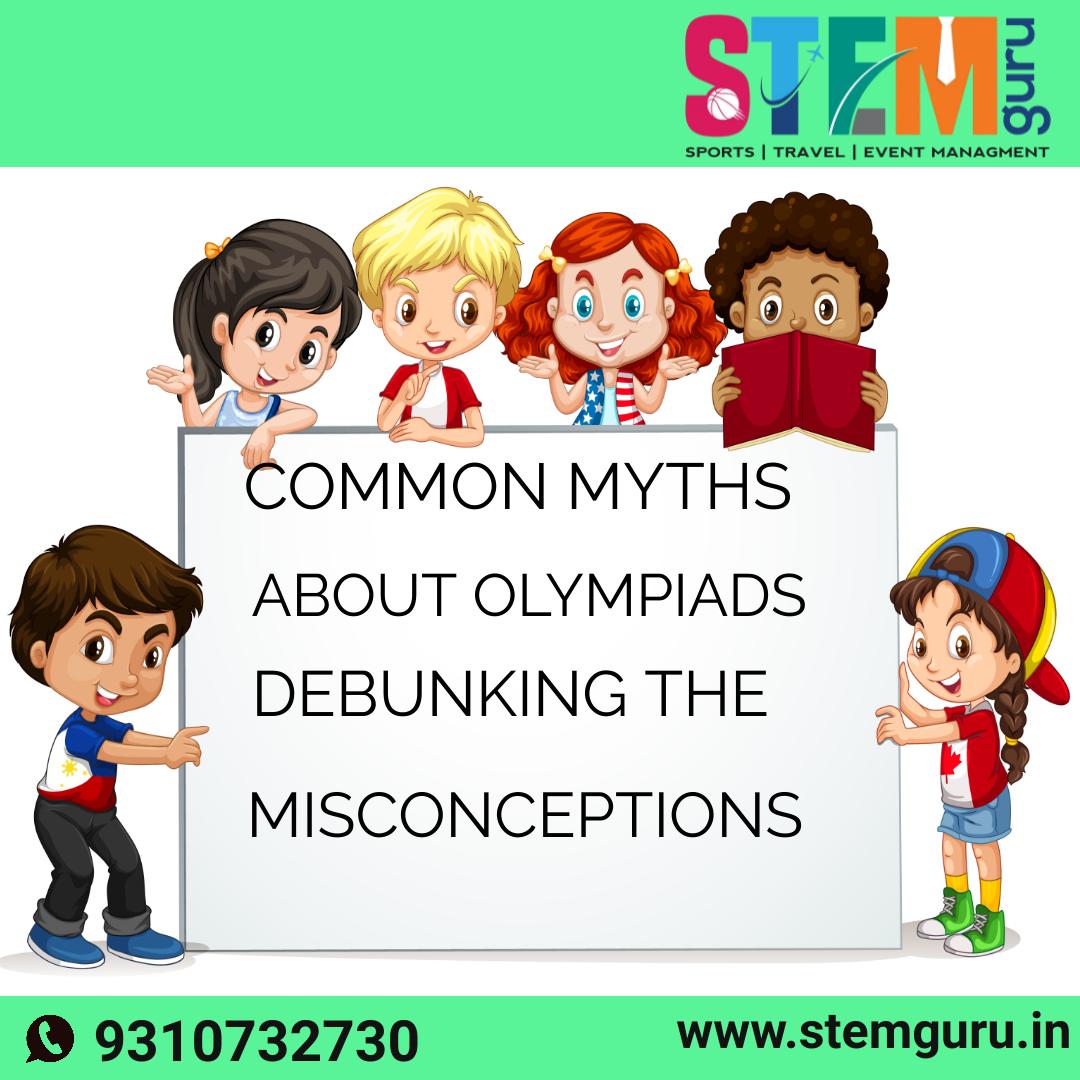Addressing Common Myths About Olympiads: Debunking the Misconceptions
Olympiads have become a vital part of the educational landscape, offering students the opportunity to challenge themselves, showcase their skills, and gain recognition on both national and international platforms. However, despite their growing popularity, several myths and misconceptions surround Olympiads. It oftens deterred students from participating or parents from encouraging their children to take part. In this blog, we’ll debunk some of the most common myths about Olympiads and shed light on the true nature of these competitions.
Myth 1: Olympiads Are Only for Top-Performing Students
One of the most pervasive myths about Olympiads is that they are exclusively for top-performing students or “geniuses.” This misconception can discourage average or even slightly above-average students from participating. They may feel that they don’t stand a chance against their peers.
Reality: Olympiads Are for Everyone
Olympiads are designed to test a student’s understanding, analytical skills, and ability to apply concepts in real-world scenarios. While they do reward excellence, they are not limited to the so-called “genius” students. In fact, participating in Olympiads can help all students, regardless of their academic standing, to improve their problem-solving abilities, gain confidence, and discover new areas of interest. The focus is on learning and personal growth, not just winning.
Myth 2: Olympiads Are Too Stressful for Students
Another common belief is that Olympiads are excessively stressful and can lead to undue pressure on students. Parents and educators may worry that the competitive nature of Olympiads could negatively impact a student’s mental health or academic performance.
Reality: Olympiads Foster Healthy Competition
While it’s true that Olympiads are competitive, the stress associated with them largely depends on the approach taken by the student, parents, and educators. When approached with the right mindset, Olympiads can actually be a source of motivation rather than stress. They encourage students to set goals, work towards them, and develop resilience in the face of challenges. The key is to focus on the learning experience rather than just the outcome. Preparing for an Olympiad can be an enjoyable and enriching process if done with a balanced approach.
Myth 3: Olympiads Are Irrelevant to Academic Success
Some people believe that Olympiads are separate from regular academics and do not contribute to a student’s overall academic success. This misconception leads to the notion that Olympiads are an unnecessary distraction from core studies.
Reality: Olympiads Enhance Academic Performance
Olympiads are deeply connected to academic success. They often cover topics that align with the school curriculum but require a deeper understanding and application of concepts. By participating in Olympiads, students reinforce their classroom learning and develop a strong foundation in subjects like mathematics, science, and language arts. Additionally, the problem-solving skills and critical thinking abilities honed during Olympiad preparation can lead to better performance in school exams and standardized tests.
Myth 4: Winning an Olympiad Is the Only Thing That Matters
The focus on winning and securing top ranks in Olympiads can create the false impression that anything less is a failure. This myth can discourage students from participating if they feel they can’t achieve a top position.
Reality: Participation Itself Is a Victory
While winning an Olympiad is a significant achievement, the true value of participating lies in the experience itself. Students who participate in Olympiads gain exposure to new challenges, meet like-minded peers, and develop important life skills such as time management, discipline, and perseverance. The knowledge and confidence gained from the experience can have a lasting impact, regardless of the outcome. Encouraging students to view participation as a learning opportunity rather than just a competition is crucial.
Myth 5: Olympiads Require Expensive Coaching and Resources
There is a belief that to succeed in Olympiads, students must invest in expensive coaching classes and study materials, making it inaccessible for many families.
Reality: Accessible Resources Are Available
While specialized coaching can be beneficial, it is not a necessity for succeeding in Olympiads. Many students perform well by using free or low-cost resources such as school textbooks, online tutorials, and practice papers. Schools often provide support through teachers and study groups, and there are numerous online platforms offering affordable or even free Olympiad preparation materials. The emphasis should be on consistent practice and a genuine interest in the subject rather than costly coaching.
Conclusion
Olympiads offer a unique platform for students to explore their academic interests, challenge themselves, and grow both intellectually and personally. By debunking these common myths, we can create a more inclusive and supportive environment that encourages all students to participate in Olympiads, regardless of their academic background or perceived limitations. Remember, the true essence of Olympiads lies not just in winning, but in the journey of learning, discovery, and self-improvement.








